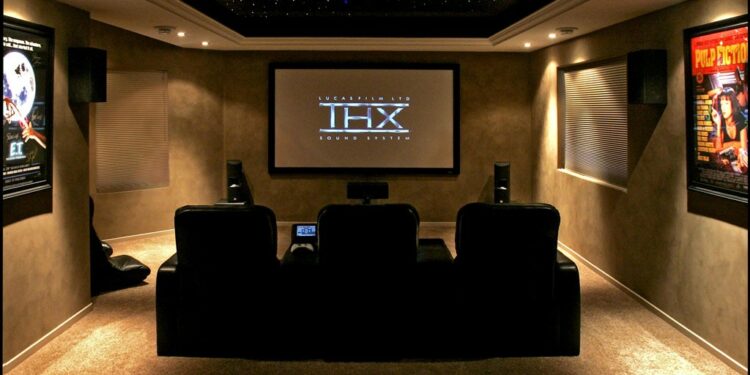Only those who have not dealt with power outages, lightning surges or dirty electricity will think they don’t need one. Power managers can be instrumental and beneficial for your home theatre system. This article will discuss power managers and their purpose and compare them with similar devices (like surge protectors, power regenerators or UPS units). We will discuss the advantages of power managers and then present our list of top home theatre power managers. Let’s begin with the basics. For more information about App, click to Imginn that would be the right place for you.
Two parts make up the role of a home theatre power manager in a system. It is responsible for improving the performance of your home theatre system by increasing the quality of electricity and reducing noise. It is also supposed to protect your equipment from power surges and extend the life expectancy of your equipment.
They also provide a cleaner, more organized environment. The cables are hidden behind your power manager and connected to it. Instead of multiple power strips scattered around the room, there will only be one power strip, and all your equipment will be connected directly to it.
What do I need to manage my home theatre’s power?
It may be necessary for safety reasons, depending on how good the electrical wiring in your home is.
A home theatre power manager is a must-have if you live in an area with high lightning strikes or are subject to frequent power surges. Even if power surges are not often, it is a good idea to have a home theatre power conditioner just in case. For more information about Tattoo , click to Butterfly Tattoo that would be the right place for you.
These days, dirty power is not uncommon. This term can refer to any anomaly in power quality. Frequency/voltage variations and power surges are two of the most common types. Power surges and frequency/voltage variations can affect your audio equipment’s performance and, even more important, could cause equipment to malfunction and be damaged beyond repair. These issues can be caused by poor power management or conditioning.
The normal mode noise is another cause of dirty electricity. This is a low-level signal which travels with the original power source. If the noise is not removed, you may be able to hear it through your speakers. Other equipment can make this noise. If your speakers make a popping or hum when you turn on the lights or when you use the hairdryer, this is a sign that you have dirty power. A home theatre power manager can filter out that noise and improve your home theatre’s performance. A power conditioner will give you cleaner power and, therefore, better sound quality. For more information about Nails , click to Summer Nails that would be the right place for you.
What Makes Some Audiophiles Oppose Power Conditioners?
While power conditioners are an excellent way to protect your equipment from damage, many audiophiles doubt their ability to improve the performance of your system. While power conditioners are capable of reducing or eliminating noise (dirty electricity), they also can remove certain sounds that they aren’t supposed to. The audio reproduction suffers from a loss of dynamics, leading to a lack of life and diminished quality. Paul McGowan from PS Audio says power conditioners can “rob music of its life and bleach sound”. What do they have to say?
Naturally, Paul McGowan suggests that you use one of PS Audio’s power regenerators. While power regenerators from PS Audio are excellent, they can be expensive and more expensive than your average power conditioner. For more information about Nails , click to Black Nail Designs that would be the right place for you.
What if you don’t have the budget for such a costly device? Is there another solution? There is one thing that audiophiles and enthusiasts of home theatre do. Install a dedicated line or hire a professional electrician to do this. The outlet is only for audio equipment.
Many of the US’s power outlets share power with appliances such as refrigerators, routers and microwaves. These appliances can create noise and impact the performance of your home theatre system. You can reduce the noise by adding a dedicated line to your home theatre or just for your AVR/ amplifier. This will allow you to get cleaner power and a cleaner sound without adding a power conditioner. It also won’t affect the performance. Depending on the complexity of the job, a new dedicated line can cost anywhere from $200 to $1000. For more information about Nails , click to Coffin Nail Designs that would be the right place for you.
A dedicated line can be noisy and efficient but cannot protect equipment from power surges and under- and overvoltages. You will still need a surge protector, preferably a power manager.



































































